Keywords: Richard Dawkins
-
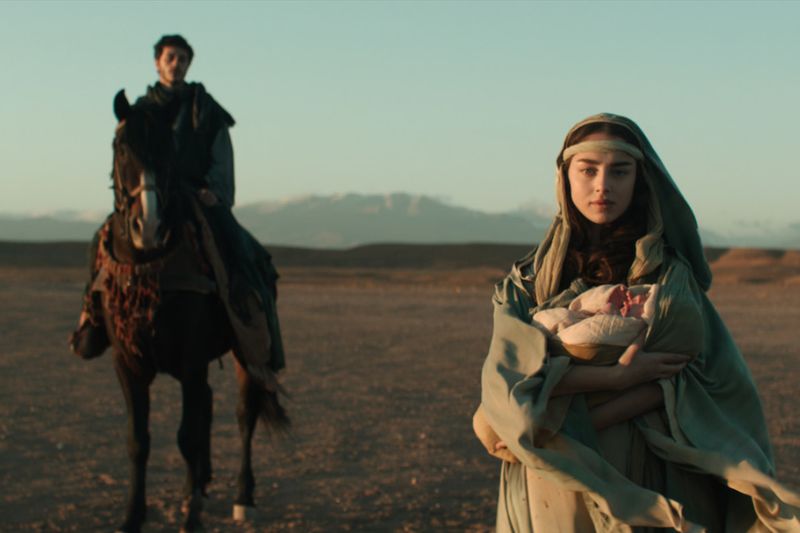
ARTS AND CULTURE
- Juliette Hughes
- 18 December 2024
In a year defined by uneven cultural offerings, books stood tall while cinema faltered and television treaded water. From Alexander Armstrong’s enchanting Evenfall to Patricia Briggs’ mystical Winter Lost, the literary landscape offered gems aplenty. Meanwhile, Netflix’s Mary proved a thunderous flop, and Barbie charmed in pink. Let the debates begin.
READ MORE
-

ARTS AND CULTURE
- Cherie Gilmour
- 06 December 2024
Russell Brand's conversion to Christianity has sparked fascination and skepticism. Dismissing his newfound faith as a cynical PR move, critics cite his controversial past. Yet, his public embrace of grace and redemption speaks to a restless spiritual hunger. Is this a genuine transformation or another reinvention of Brand’s ever-shifting persona?
READ MORE 
-
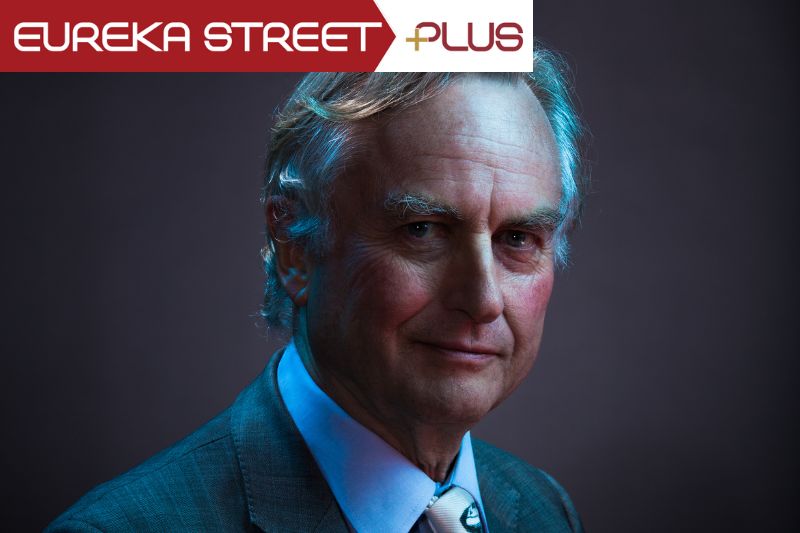
INTERNATIONAL
- David Halliday, Juliette Hughes
- 03 March 2023
2 Comments
In the world of science and rational inquiry, few names loom as large. The often-controversial evolutionary biologist has spent decades exploring the mysteries of the natural world and ruffling feathers in religious and secular movements alike. Speaking to Eureka Street, Richard Dawkins discusses the difficulties in public discourse and what constitutes modern heresy.
READ MORE 
-

ARTS AND CULTURE
- Michael McGirr
- 09 February 2023
6 Comments
At the root of questions around ChatGPT are issues of authenticity and creativity. It has the capacity to call the bluff on a society which is increasingly inclined to trade pre-digested ‘messaging’ and call it a conversation. Outsourcing self-expression to a computer forces you to ask yourself what makes a human being. Where does the machine end and where do I begin?
READ MORE
-
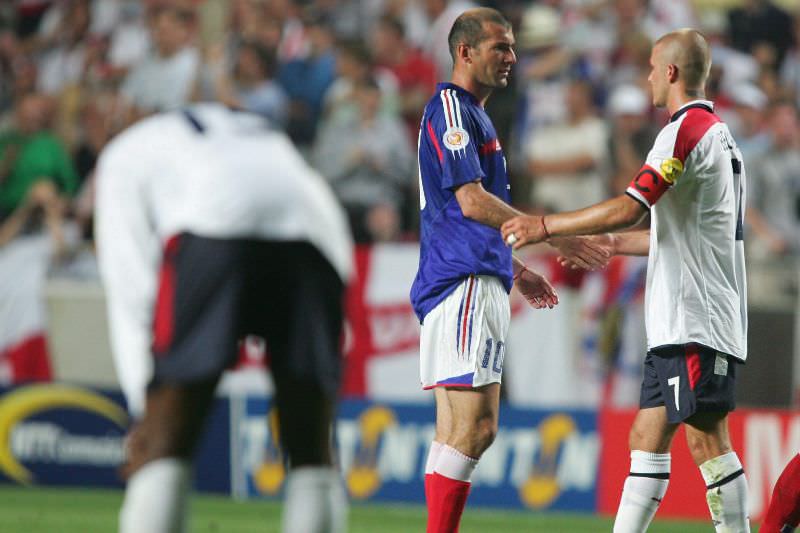
RELIGION
- Andrew Hamilton
- 11 February 2021
41 Comments
The exchanges within churches echo trends in national life that heighten disagreements, lessen respect, and tend to confine conversation circles to people of similar views. People become annoyed if those opposing their views gatecrash their forums. This trend creates problems for Church sponsored publications.
READ MORE 
-
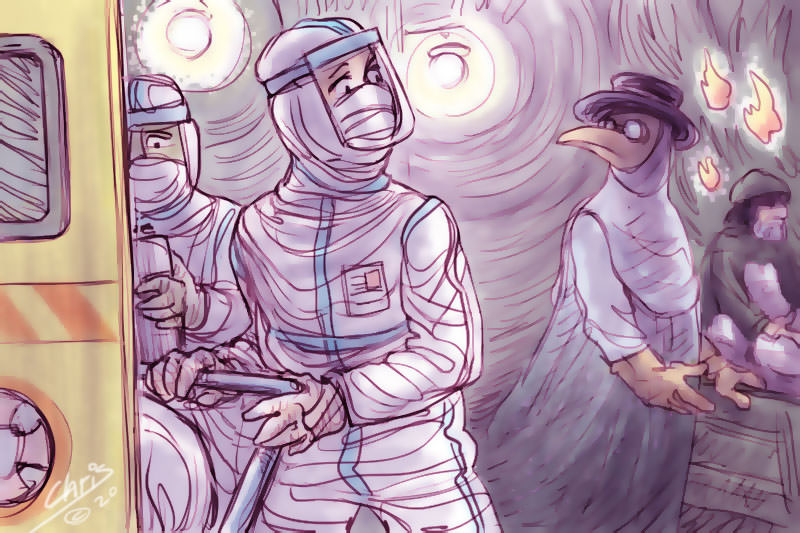
ARTS AND CULTURE
- Tim Robertson
- 17 April 2020
9 Comments
I can’t be the only one who has, in recent weeks, found myself reaching for my dog-eared copy of Daniel Defoe’s A Journal of the Plague Year, a fictional re-telling of the 1665 great plague of London.
READ MORE 
-
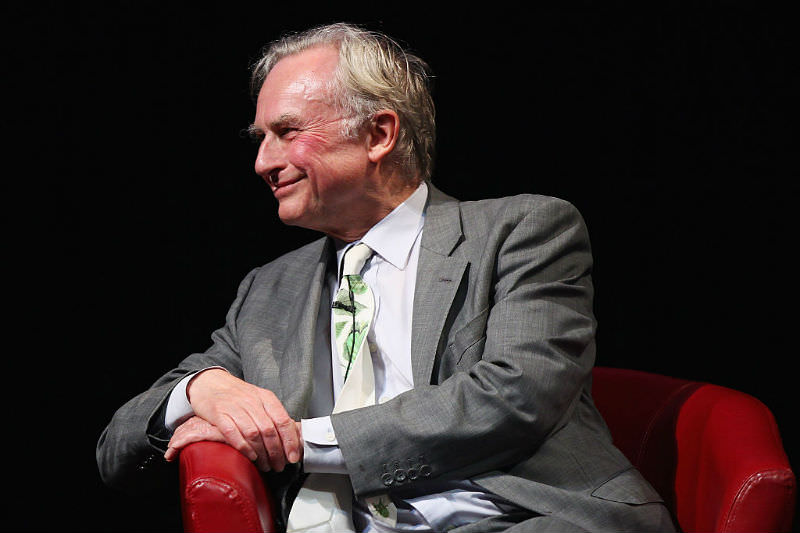
RELIGION
- Tim Robertson
- 27 February 2020
16 Comments
Contrary to their claims, the New Atheists do have a creation myth. It goes something like this: emerging from darkness into the light, Enlightenment thinkers cast off the shackles of religion and, in so doing, ushered in an age of reason. For the likes of Richard Dawkins, a founding member of the movement, this is an article of faith, and he’s spent recent years casting himself not just as an heir of this tradition, but also as its modern day guardian.
READ MORE 
-

AUSTRALIA
- Rachel Woodlock
- 15 November 2016
7 Comments
It is an enduring personal tragedy that I can never think of 'zinger' responses to hurled insults until having turned them over in my mind for some time. The white male hoon in his 20-year-old unroadworthy car has long-since roared away from the traffic lights after shouting some unremarkable and unoriginal statement: 'Go back to where you came from you [expletive] terrorist.' Kilometres later I'm ready to shout out: 'I would, but Doncaster East is becoming way too pricey for the likes of me.'
READ MORE 
-
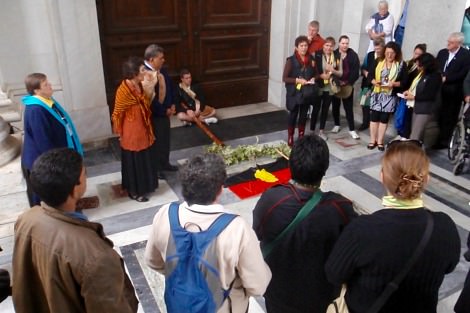
INTERNATIONAL
- Frank Brennan
- 27 July 2016
2 Comments
The violence at the pastoral frontier of the British colonies here in Australia was all pervasive. 228 years after it commenced, we are still experiencing the after-effects. When I started advocating Aboriginal rights here in Australia almost 40 years ago, the prevailing wisdom was that the missions and missionaries were all bad news. It will come as no surprise that I have always doubted that Aborigines were well rid of religion and the missionaries in all circumstances.
READ MORE
-
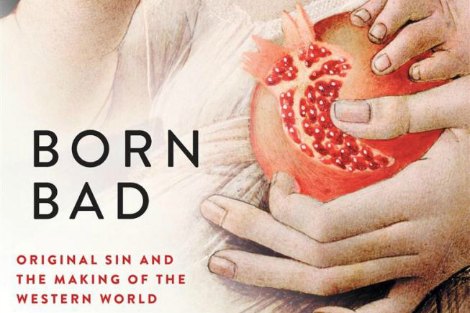
INTERNATIONAL
- Andrew Hamilton
- 04 September 2014
13 Comments
James Boyce claims that contemporary attitudes to politics, human origins, economics and human psychology can be understood only if we recognise the hidden presuppositions imported from the theology of original sin. Theories on human nature such as those proposed by Adam Smith, Sigmund Freud, Richard Dawkins and the US Founding Fathers, tried to emancipate people from religious ideas, but often unwittingly enshrined them.
READ MORE 
-

AUSTRALIA
- Frank Brennan
- 11 April 2014
1 Comment
'Whether or not we have a bill of rights, much of our human rights jurisprudence remains partial, failing to extend rights equally to all. Once we investigate much of the contemporary discussion about human rights, we find that often the intended recipients of rights do not include all human beings but only those with certain capacities or those who share sufficient common attributes with the decision makers. It is always at the edges that there is real work for human rights discourse to do.' Frank Brennan's Blackfriars Lecture
READ MORE
-

RELIGION
- Frank Brennan
- 15 July 2013
6 Comments
Sean Faircloth, a US director of one of the Dawkins Institutes committed to atheism, raised what has already become a hoary old chestnut, the failure of Francis when in Argentina during the Dirty Wars to adequately defend his fellow Jesuits who were detained and tortured by unscrupulous soldiers. Being a Jesuit, I thought I was peculiarly well situated to respond. I confess to having got a little carried away.
READ MORE